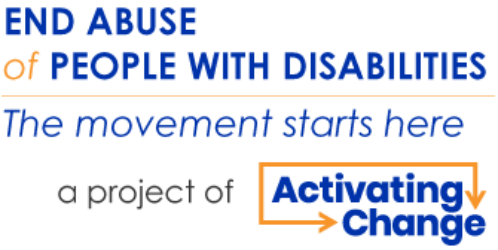Innovations at the Intersection: Centering Survivors with Disabilities in the Movement
Survivors with disabilities are experts in their own lived experiences, so they should guide our work to ensure services are accessible and responsive to their needs. To meaningfully work with survivors with disabilities, you need to make sure everything you do is accessible and inclusive.
In this panel discussion, self-advocates from Washington, D.C. and Kansas who are working to address domestic and sexual violence against people with disabilities will share how their work empowers them as advocates and how they have partnered with their team members to play a meaningful leadership role.
In the session, you will learn strategies for decision-making and power-sharing, tips for ensuring cognitive and physical access, and ways to empower survivors with disabilities with the tools and support they need to be equal peers in the work to address domestic and sexual violence.
